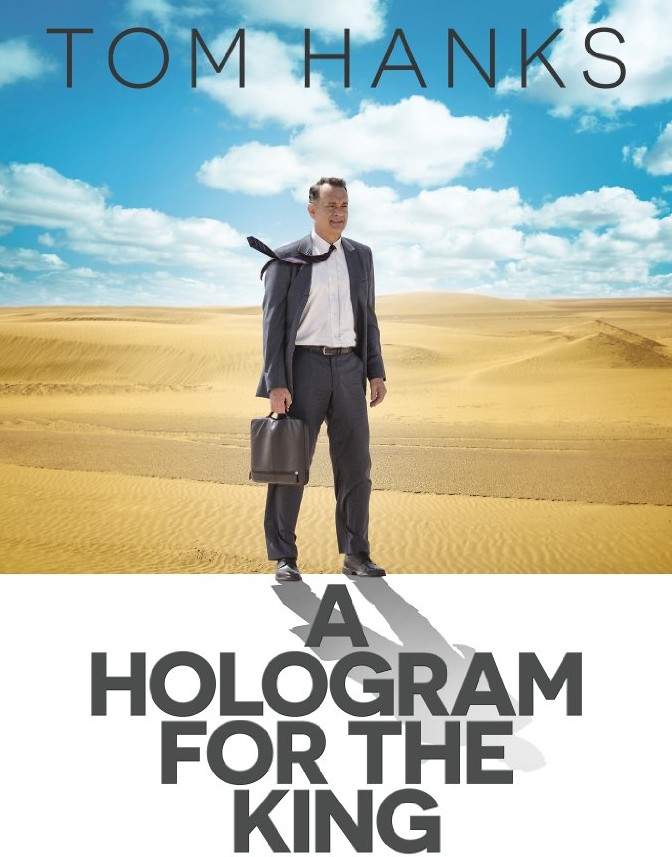by Bonnie Anderson and Dan Webster
What a sweet, tender and surprising film.
Based on the Dave Eggers novel of the same name, this is the story of an American information technology businessman, Alan Clay (Tom Hanks), assigned to make an I.T. pitch presentation to a prospective client in Saudi Arabia. The client is the King.
This won’t be a blockbuster, but it will make you smile, even grin. Hanks may bring in an audience and if he does, they will not be disappointed.
The cultural differences between the American and the Saudis are stark, and the story appears to be about the challenges of business-making in spite of the odds against it. But ultimately the film isn’t about business deals against all odds. The film’s about love, the kind that creeps into unlikely situations and unexpectedly takes over. With this film you just have to wait awhile to get to that.
You may wonder, where is this going? But that’s part of the charm of a story about a clash of cultures, values and ethics.
Hollywood has long been fascinated with culture clash stories. From ‘Bali Hai’ and ‘An American in Paris’ to the ‘Road’ series of films with Bing Crosby and Bob Hope in the ‘40s, 50s and 60s, producers have explored the exotic lure of cultural differences.
Hanks in this film is, well, Tom Hanks. Sturdy, reliable, affable, fairly easy-going, and now middle-aged which fits for this role. This isn’t an unusual role for him. He hasn’t portrayed the globalization blues in any other film, but his looks of confusion and final acceptance are familiar. They transcend the story lines from many of his other films and ring true in this film as well.
But a delightful human story develops as Hanks wrestles with his conscience, his failed marriage, his opinion of himself as a father all the while dealing with a medical issue. He finally goes to a doctor who happens to be a woman; very rare, we are told, in KSA (Kingdom of Saudi Arabia).
Sarita Choudhury, who portrays Clay’s doctor, is a pleasant surprise as Zahra Hakim, an independent Saudi woman. She and an unlikely taxi driver, Yousef (Alexander Black), are the ones who really carry the film and bring a friendship to Clay that serves him well.
The scenery is alarming – vast, dry and brown with isolated mansions and elaborate empty office complexes popping up on an unsuspecting landscape, that have been created to feed the imagination of the King who would build his own version of a Saudi Silicon Valley.
This is a lovely film elevating the human condition. When we believe we’re so different from another human we can be genuinely surprised and awed at our similarities. As Dr. Hakim tells Clay in a moment of tenderness, “I think we are separated by the thinnest filament.” We think so too.
It’s also a story that challenges the stereotype of men interested only in sex. We actually witness the difference between having sex and making love. It reminds us that love is an international language and can be seen as a gift of the Creator.
Bonnie Anderson is a very active lay leader in her parish, diocese and in the wider Episcopal Church. She is an experienced community organizer and lives in suburban Detroit. Dan Webster is an Episcopal priest in Baltimore, Maryland and a former broadcast news executive. But don’t expect only east coast urban perspectives here. As it turns out, they both grew up in Southern California. They blog about films and faith at Faith Reels

